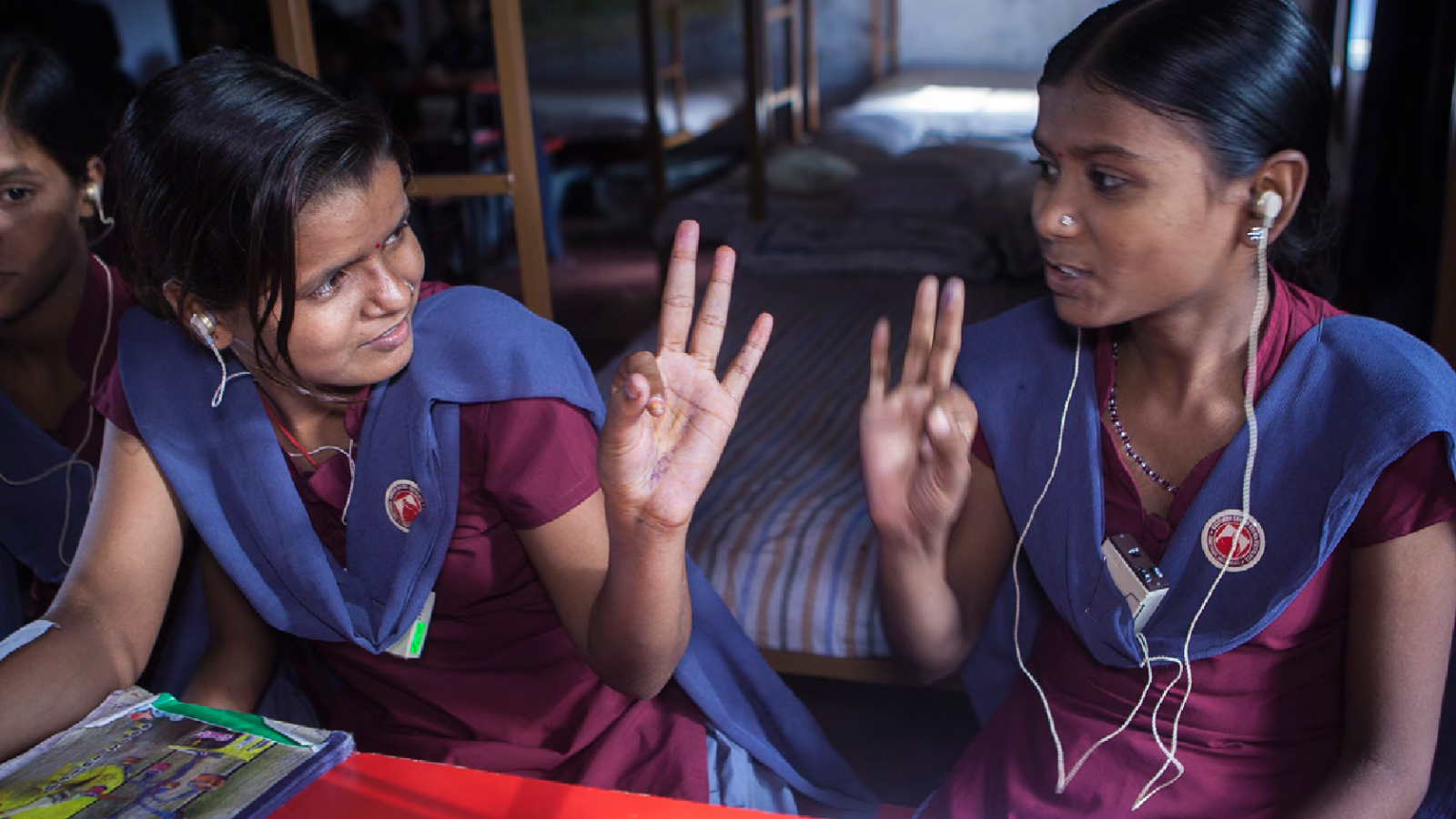
Making Inclusive Education Evidence-Based
In-depth research on gaps in the legal rights of students with disabilities to inclusive education and focused advocacy to strengthen the policy framework
Context
The rights of persons with disabilities to inclusive education got statutory backing only as recentlyas 2016, with the passage of the Right for Persons with Disabilities Act (‘RPwD Act’). Yet, effectiveimplementation remains a pressing concern. This was particularly exacerbated during the pandemic when complete reliance on digital modes ofinstruction created barriers for all students but those with disabilities were the worst affected.
For instance, a study by Vidhi,COVID-19 and Exclusion of Children with Disabilities from Education, found that 62% of students with disabilities were‘never’, or only ‘sometimes’ able to understand the lessons and finish their assignments, due to inaccessibility. Yet, another Vidhi study, How Accessible is Education for Students with Visual Disabilities, found that 36 per cent and 95 per centof e-textbooks sampled from the National Council of Educational Research and Training (NCERT) and the State Councils for Educational Research and Training (SCERT) hosted on the Government of India’s Digital Infrastructure for School Education (DIKSHA)platform, were inaccessible for such students.
Vidhi has conducted extensive empirical research on gaps in the legal policy framework and itsimplementation, which prevent children with disabilities from accessing their constitutional
right to education, as specified under the Right to Education Act, 2010 (RTE Act) as well as the RPWD Act, 2016. Worryingly, of the population of children with disabilities, one-fourth between 5-19 years, and three-fourth of 5-year-olds, are still not enrolled in any formal schooling (UNESCO, 2019).
Vidhi is creating this evidence bank to move forward the conversation and consequently existing policies towards greater inclusivity for children with disabilities.
Vidhi’s research on the right to education for students with disabilities
Between July 2020 and March 2021, Vidhi published four reports, drawing on consultations with special educators, teachers, government officials, civil society organisations (CSOs), students and parents. The research found:
- A school system unprepared for true inclusion – continued practice of segregated schooling limits choices for parents and students with disabilities;
- Disruption in access to determinants of well-being during COVID-19 – including health, nutrition, rehabilitation and routine affect the ability of students to engage in education;
- Inaccessibility of digital learning materials – especially in subjects like Mathematics, Sciences, Economics, among others, likely negatively impact career choices of students with visual disabilities;
- Under-trained and overworked regular teachers, and under-utilised special educators – systemic challenges of large class sizes and administrative responsibilities limit regular teachers, special educators lack job clarity and adequate remuneration, forcing them to leave the field.
Recommendations by Vidhi included:
- Addressing the inconsistencies in the RTE Act, including definitions of key terms to ensure these were in consonance with the disability rights framework, which has evolved with the passage of the RPWD Act;
- Broadening the inclusive education policy framework to address intersectional disadvantages of socio-economic vulnerability, which inhibit access for students with disabilities,
and;
- Incorporating principles of Universal Design for Learning (UDL) – using multiple teaching methods to remove barriers to learning – in curriculum, assessment and pedagogy.
Impact
Through over 10 consultations with officials in Department of Empowerment for Persons with Disabilities (DEPWD), Ministry of Social Justice and Empowerment (MSJE), Ministry of Education (MOE), Samgra Siksha Abhiyaan (SSA), the Rehabilitation Council of India (RCI), and State Disability Commissions of Tamil Nadu, Kerala, Karnataka and Assam, Vidhi is actively placing the disabled at the centre of the public narrative of education.
Specifically, it was invited to submit suggestions to the Chief Minister of Kerala on education for students with disabilities for the Nava Kerala Mission. It has also been advocating with other organisations working on the ground and publishing widely in the media to deepen the public conversation on this subject.
“I’d like to congratulate the Vidhi Centre for Legal Policy on the release of its insightful report on ‘COVID-19 and the Exclusion of Children with Disabilities in Education’. The report identifies a distinct set of challenges faced by children with disabilities in accessing education and offers creative solutions, crafted in consultation with civil society experts and government officials. I do want to appreciate the initiative taken by Vidhi that calls not just for a response, but for action from the government and from civil society alike to the much, much neglected issue of access to education. I hope the findings of this report will be implemented and put into action to secure a better future for the children of our country.”
– Dr. Shashi Tharoor, Member of Parliament from Thiruvananthapuram